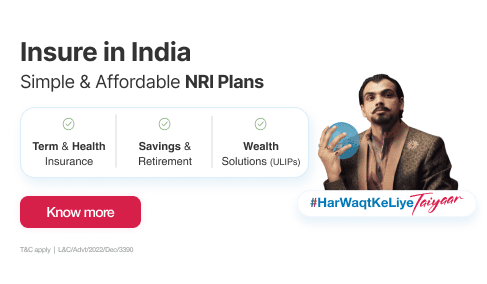What is Single Premium Term Insurance?
The single premium term insurance plan is one of the options under premium payment terms, along with regular premium pay and limited premium pay. The single premium term plan is a premium payment term, and a premium payment mode since you only need to make one-time lump sum premium payment to start enjoying your term insurance coverage.
By choosing a single premium term insurance plan, you can avoid the hassle of making regular premium payments towards your term insurance plan on a monthly, quarterly, semi-annual, and annual basis. This means your term insurance policy only needs a single lump-sum premium payment at the start of the policy term, and no other payments need to be made.

 FOR EXISTING POLICY
FOR EXISTING POLICY  1860 266 9966
1860 266 9966
 FOR NEW POLICY
FOR NEW POLICY 
















 Reviewed by
Reviewed by



